
How to write saranghae in korean characters
The polite standard version of this phrase is "좋아해요 jowahaeyo " and you would say this to show a bit more respect and be a bit more polite when confessing that you like someone. "I like you" in Korean at the formal speech level is "좋아합니다 jowahamnida " and, much like with the formal "I love you", isn't used often.
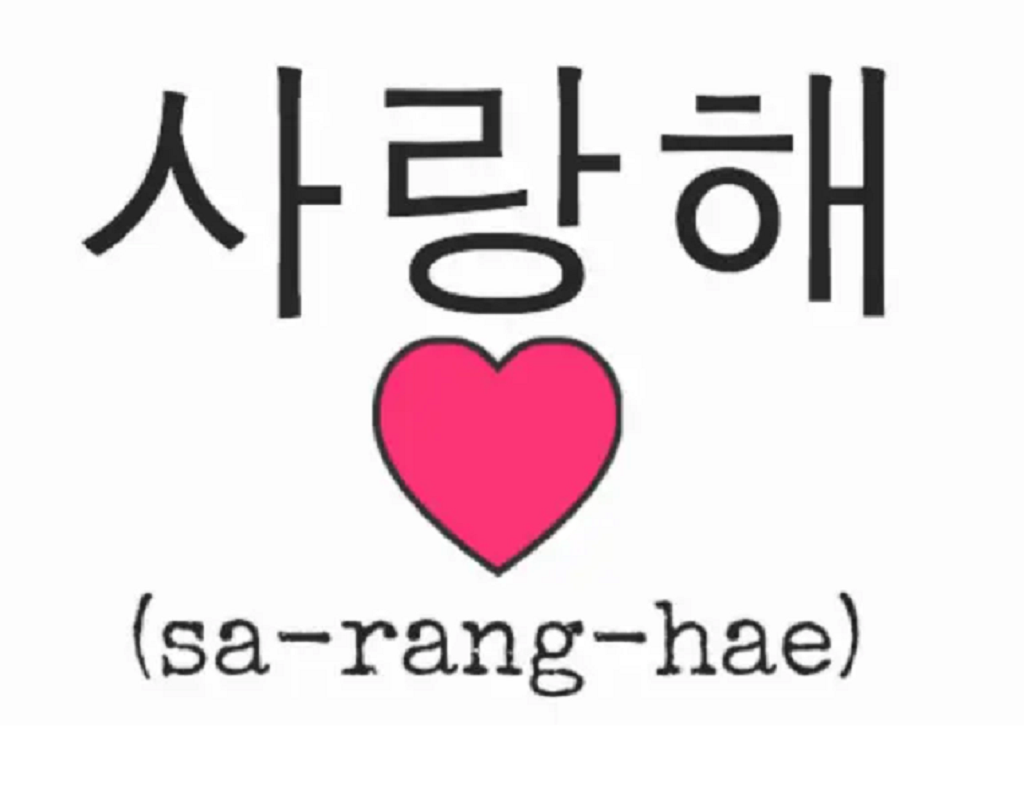
Searching for the meaning of Saranghae? Here are all the answers and some common Korean
Oppa, Saranghae! is the debut appearance of Kim Jae-hoon (also known as KimKim) in a Singaporean television production. A Taiwan-based South Korean actor and singer, Kim also provided the vocals for the Mandarin and Korean versions of the series theme song "Galaxy Wind" (来自星际的风). [4] Filming started in November 2022.
Oppa Saranghae ♥ in Korean Hangul Korean Sticker TeePublic
Here are the Korean words that make up the phrase "I love you": 사랑 (sarang) - love. 하다 (hada) - to have or to do. 사랑 (sarang) + 하다 (hada) = 사랑하다 (saranghada) When you add 하다 (hada) to the word 사랑 (sarang), you get the Korean verb 사랑하다 (saranghada). So literally translated, this phrase means "to.

"Saranghae Korean Finger Heart KPop Oppa B.T.S" Art Board Print for Sale by dkhissidk Redbubble
Now, the informal (and most common) way to say "I love you" in the Korean language is 사랑해 ( saranghae ). 사랑해 ( saranghae) is used between couples, and sometimes even close friends. So if you're already in a relationship, this is the phrase you'd use. And to say "I love you, too" in Korean, you'd say 나도 사랑해.

Oppa Saranghae Hangul Korean Pastel KPop Kdrama Saranghae Kids Long Sleeve TShirt TeePublic
Same Age = Friend (친구) Being the same age in Korea means you're equals, and you'll be instantly labeled a friend. It doesn't matter if you're a very unpleasant person, and the other person hates you. For people of the same age, the actual term used in Korean to refer to people of the same age is "friend" (친구 - chingu).

"Saranghae Korean Finger Heart KPop Oppa B.T.S" Poster for Sale by dkhissidk Redbubble
I love you too in Korean. So, if someone confesses their love by saying "I love you," and you want to reciprocate the feeling, you can say, you can reply with 나도 사랑해 (nado saranghae). It means "I love you, too. Formal. I love you too. 저도 당신을 사랑해요-Jeo-do Dang-shin-eul Sa-rang-hae-yo. Informal.
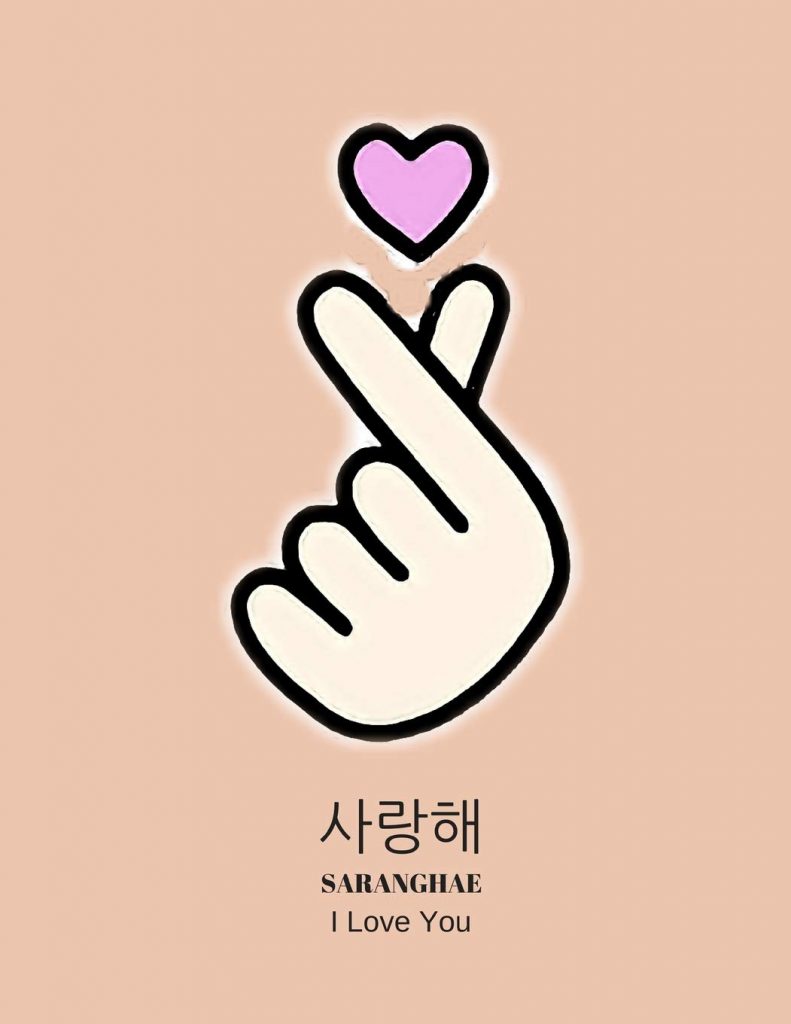
Yuk Lebih Mengenal Huruf Hangul Korea! Paket Trip dan Tour ke Korea 2023
The literal definition of oppa (오빠 in hangul) is "older brother", used by women. It's a super handy word because calling someone "you" in Korean is mostly reserved for close friends, thanks to the hierarchy in Korean society. Oppa is a way to say "you" to an older Korean guy without offending him. It's a must for Korean females.
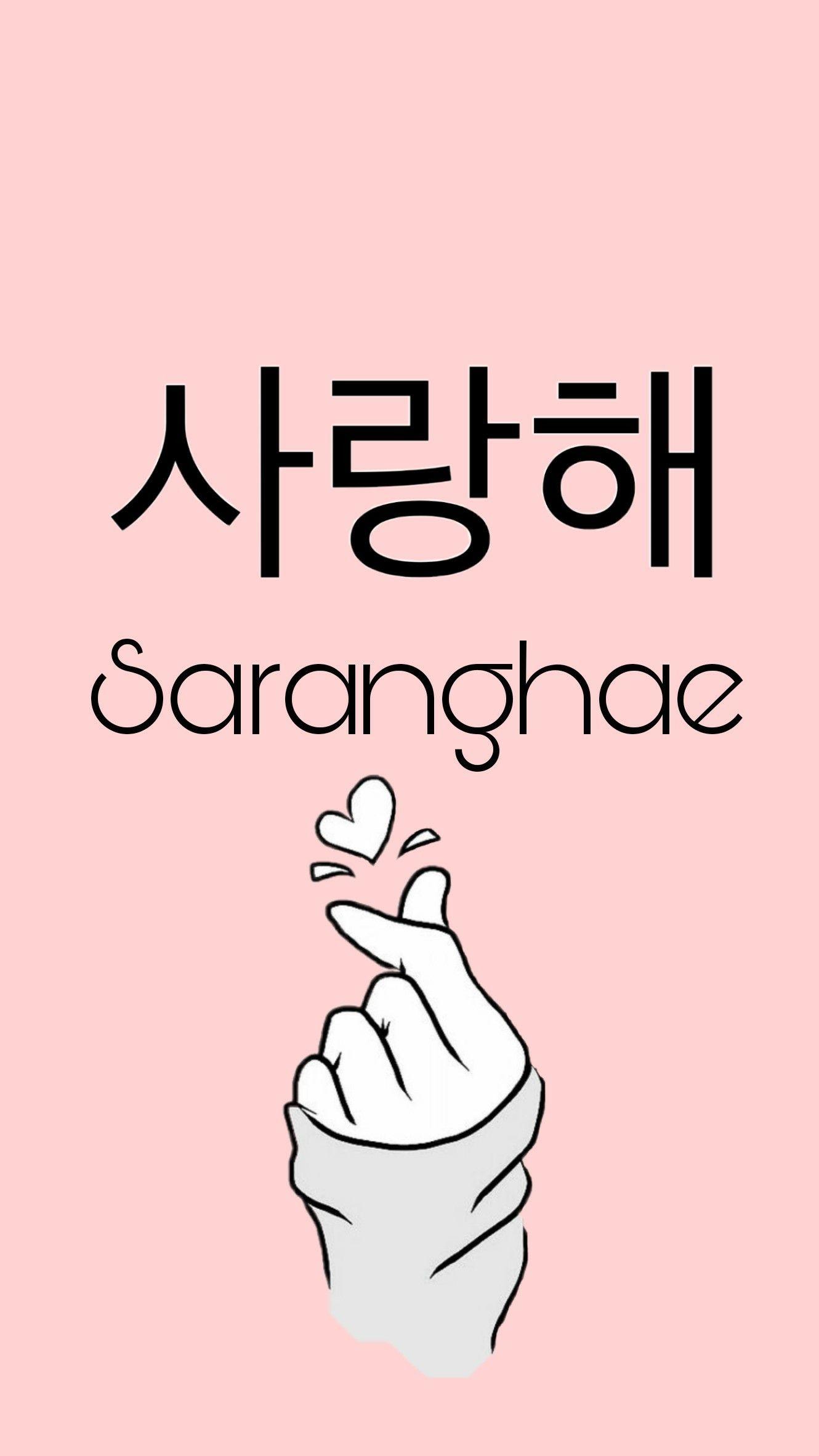
Saranghae Wallpapers Top Free Saranghae Backgrounds WallpaperAccess
But they are both written the same way in Korean Hangul: 사랑해요. 사랑해 (saranghae) is used between couples, and sometimes even close friends. If you are in a relationship with someone, you can use this phrase to express your emotions.. You can also call your husband 오빠 (oppa), and many women do. Men sometimes use the English.

How To Say I Love You in Korean Korean words, Learn korean, Korean writing
Published by. oegukeen. on. October 22, 2012. In Korean oppa (오빠) literally means "older brother of a female person", but the meaning of oppa changed over time and now can refer to female person's. older brother, very close friend who is older (but not much older!), romantic interest, boyfriend, and sometimes even husband, if they are.
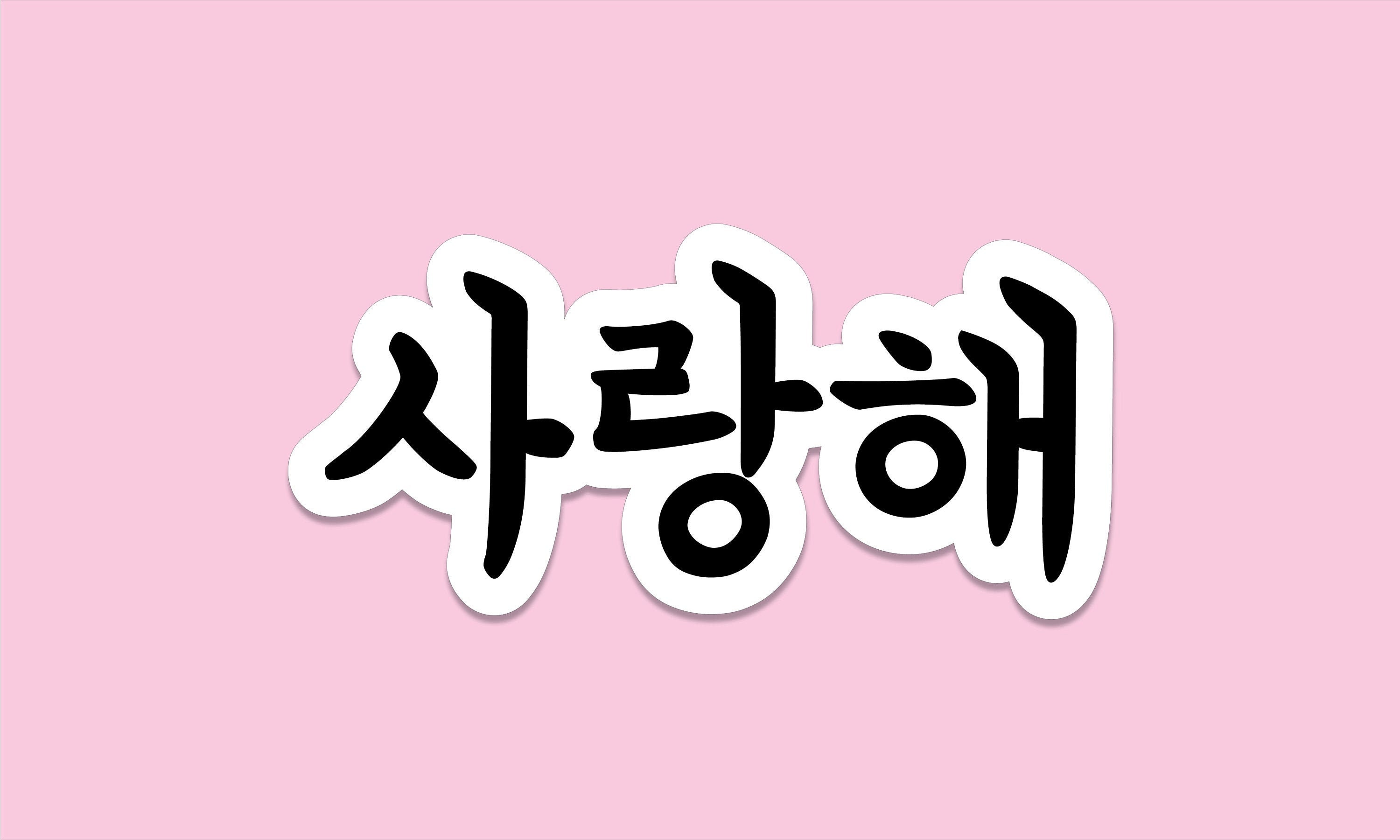
Saranghae Korean hangul vinyl sticker / korean stickers Etsy
To take it one step further, you can say: jagiya saranghae (자기야 사랑해) = Darling, I love you. (For the perfect delivery, I suggest you watch some k-drama and learn from the pros!) Just like in English, you should of course use this only when you really mean it and not too soon! But hey, if you get a weird reaction back, you can always.

Oppa Saranghae Hangul Korean Pastel KPop Kdrama Saranghae Tapestry TeePublic
(na hal mal isseo. saranghae) I have something to say. I love you. 사랑합니다 - saranghamnida. This is the most formal form of 'I love you'. You can use it with people much older than you or in formal situations. You might hear someone say it to their parents and grandparents or a company to its customers.
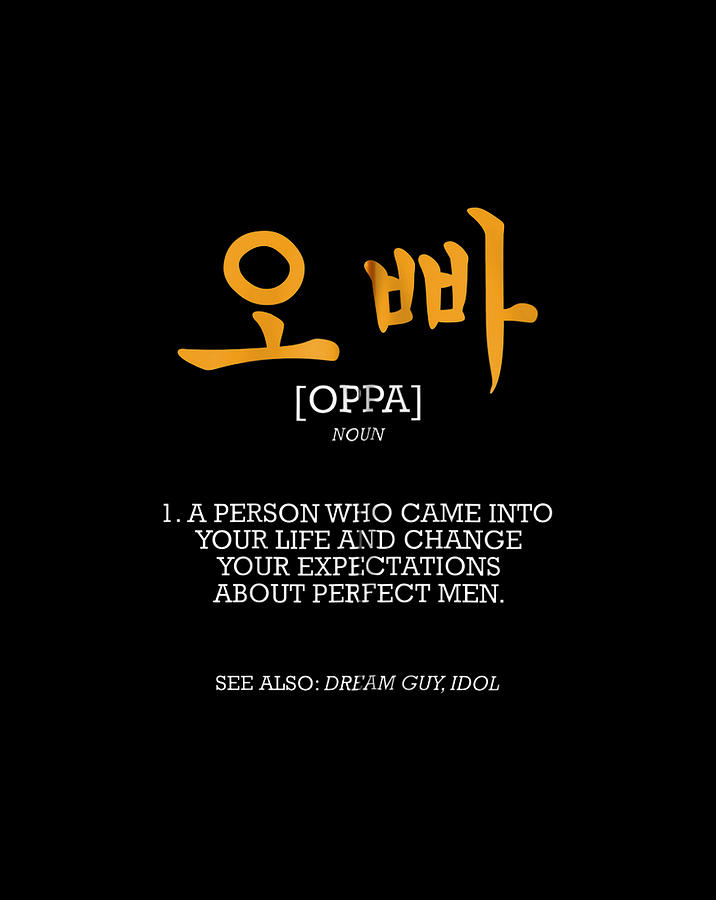
Oppa Definition K Drama Fan Korea Saranghae Love Hangul Digital Art by Nguyen Hung
What Is Saranghaeyo Korean? "사랑해요" (sa-rang-hae-yo) is a common way to say "I love you" in Korean. It is used to express romantic love or affection for someone, and can be used in both casual and formal settings. The word "사랑" (sa-rang) means "love," and the word "해요" (hae-yo) is a polite way of saying "do" or "say" in Korean.
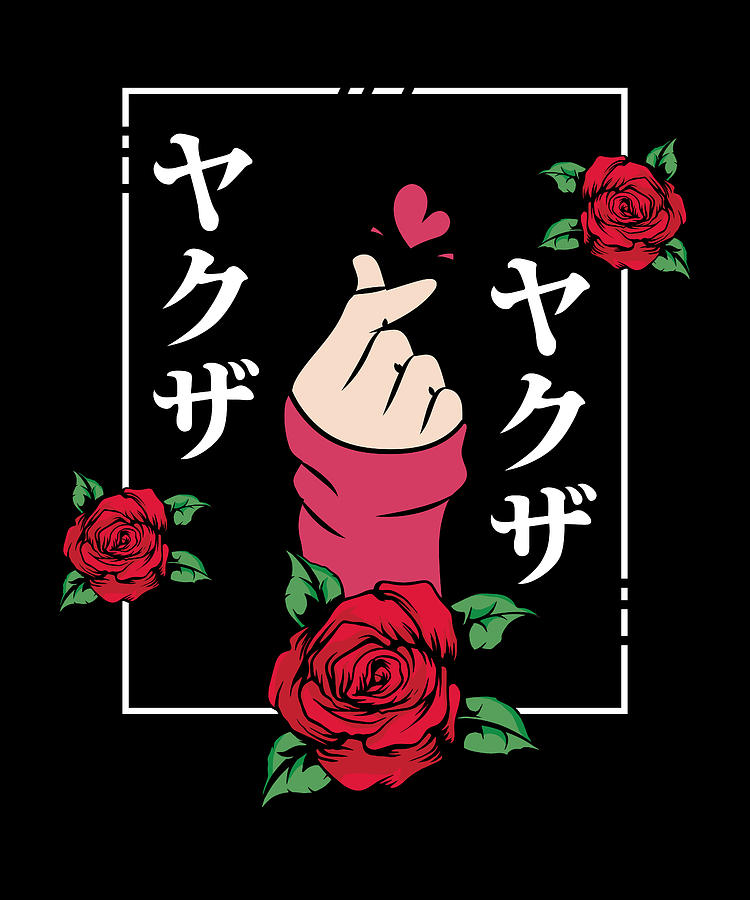
Saranghae Oppa Kpop Korean Finger Heart Sign Hand Digital Art by Florian Dold Art
"Oppa Saranghae" will be available on demand on meWATCH from Mar. 31, 2023. It will air on Channel 8 from Apr. 12, 2023, weekdays at 9pm. Congratulations!

Korean Hangul Finger Heart Saranghae Daebak Oppa Korean Digital Download Vector PNG SVG JPEG
2) 사랑해 (saranghae) Listen: 사랑해 This is the same word as above, but the polite ending 요 (yo) has been dropped. It carries the same meaning but is the casual form. You can use 사랑해 (saranghae) with family, friends, children, and animals. Couples also commonly use this form with each other. Example: 오빠 사랑해 (oppa saranghae)

Hd Logo, Logo Clipart, Saran, Name Logo, Kpop, Png Images, Korean Actors, Emoji, Clip Art
(jagiya, saranghae.) I love you, darling. 미안해, 자기야. 용서해줘. (mianhae, jagiya. yongseohaejwo.) I'm sorry, darling. Forgive me. 2. Nae sarang (내 사랑) - "My Love" This term of endearment can directly be translated as "my love." It is similar to 자기야 (jagiya) in how couples use it.

Cute Korean Ringtones ''Oppa Saranghae'' YouTube
The direct translations for oppa, hyung, nuna, and unnie are: Oppa meaning: older brother. Hyung meaning: older brother. Nuna meaning: older sister. Unnie meaning: older sister. However, the actual meanings are quite different than the translations in English. We'll explain what they mean and when to use them. Here's how to use each one.